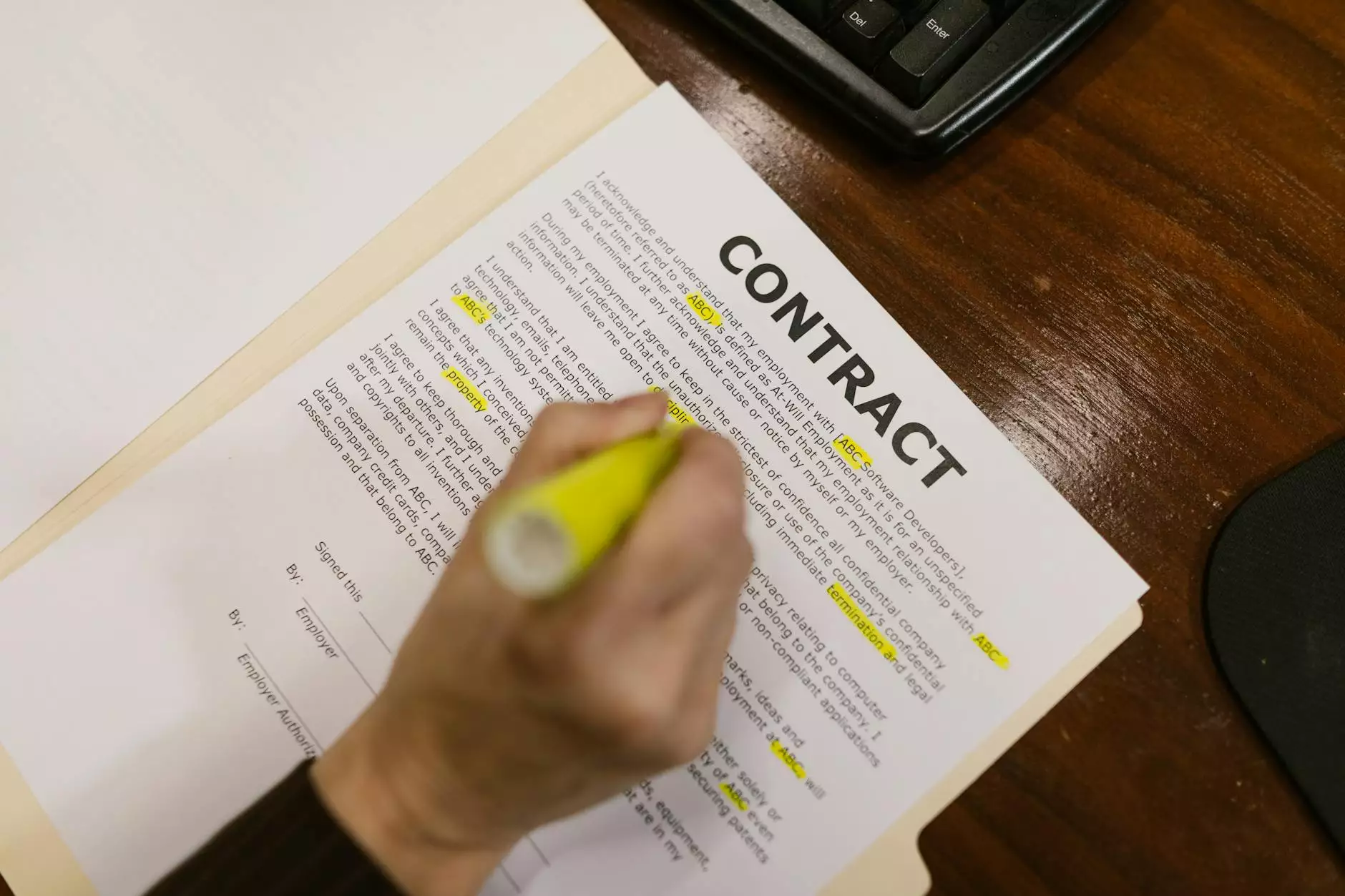Revoking An Irrevocable Trust
Legal
Introduction
Welcome to Denaro Anthony D Atty, your trusted source for expert guidance on revoking an irrevocable trust. In this comprehensive guide, we will walk you through the necessary steps to successfully revoke an irrevocable trust, providing valuable insights and advice along the way.
Understanding Irrevocable Trusts
An irrevocable trust is a legal entity that carries significant weight, often formed to protect assets or ensure specific provisions for beneficiaries. Once an irrevocable trust is established, it is generally considered permanent and unchangeable. However, there are situations where you may need to revoke or modify the trust, and we are here to help you navigate this process.
Reasons for Revoking an Irrevocable Trust
There are various reasons why you might consider revoking an irrevocable trust:
- Change in Circumstances: Significant life events like marriage, divorce, or the birth of a child may warrant a modification or revocation of the trust.
- Outdated Provisions: Over time, an irrevocable trust may no longer align with your goals or objectives. In such cases, revocation allows you to update the provisions to match your current needs.
- Disputes or Conflicts: If disagreements arise among beneficiaries or trustees, revoking the trust can help resolve these conflicts.
- Legal or Tax Considerations: Changes in tax laws or other legal circumstances might necessitate the revocation of an irrevocable trust.
The Revocation Process
Revoking an irrevocable trust requires meticulous attention to detail and adherence to legal procedures. Below, we outline the general steps involved:
- Evaluation: Begin by assessing whether revoking the trust is the best course of action for your specific situation. Consult with an experienced attorney like Denaro Anthony D Atty to discuss your options.
- Review the Trust Document: Thoroughly examine the trust document to understand any provisions or clauses related to revocation. Some trusts may include specific steps or conditions that must be met.
- Obtain Consent: If the trust involves beneficiaries or other parties, you may need their consent before proceeding with revocation. Consult with your attorney to ensure you follow the appropriate legal procedures.
- Seek Court Approval: In some cases, court approval may be required for revoking an irrevocable trust. Your attorney will guide you through this process, ensuring all necessary documents are filed promptly.
- Execute the Revocation: Prepare the required legal documents, including a formal revocation agreement. Follow the specific instructions outlined in the trust document and consult with your attorney to ensure accuracy.
- Notification: Notify all relevant parties, including beneficiaries and trustees, about the revocation. Provide them with copies of the revocation agreement and any other required documentation.
- Update Records: Make sure to update all associated legal records, such as property titles or financial accounts, to reflect the revocation. Your attorney will help you navigate this administrative step, ensuring a smooth transition.
- Review Your Estate Plan: Revoking an irrevocable trust may impact your overall estate planning strategy. Take this opportunity to review and revise your estate plan as necessary, considering factors such as tax implications and beneficiary designations.
Conclusion
Revoking an irrevocable trust is a complex and legally sensitive process. It is essential to seek guidance from knowledgeable experts like Denaro Anthony D Atty to ensure you make informed decisions and follow the appropriate procedures. With our comprehensive understanding of law and government - legal matters, we are here to provide you with the support you need throughout the revocation process.
Contact us today to schedule a consultation and take the first step towards successfully revoking your irrevocable trust.




